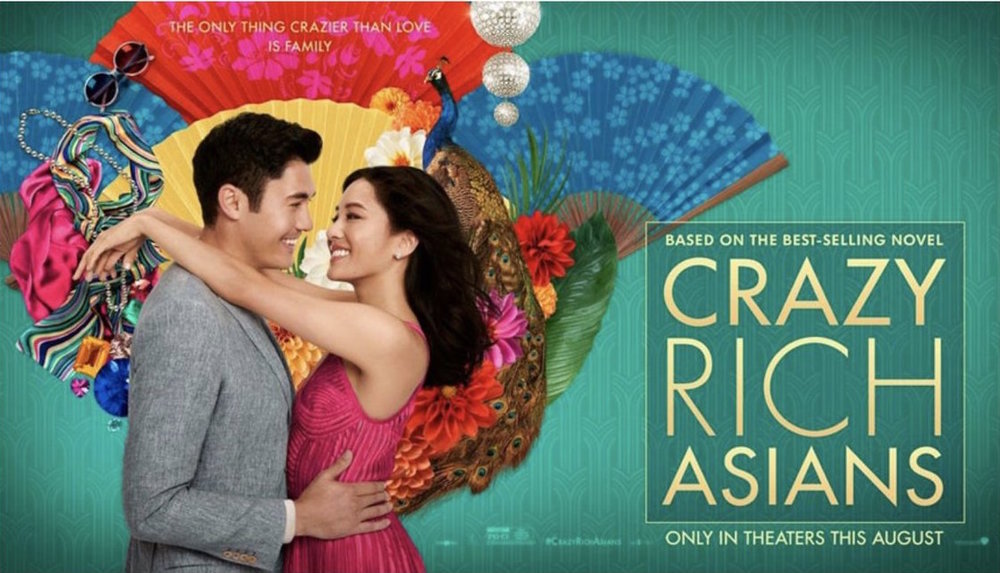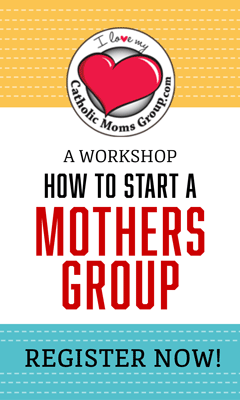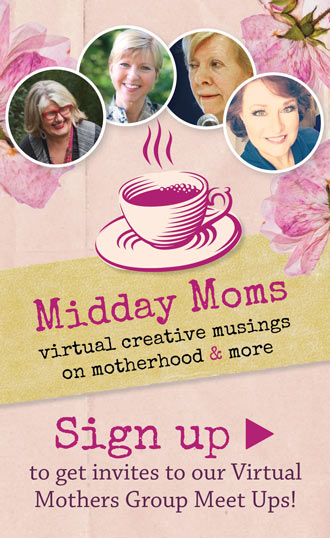
Crazy Rich Asians – Movie Review by Fr. Eric Mah
It was marvellous to read a Catholic priest take on a movie!
I have to admit, seeing a movie review in my newsfeed on Facebook, written by Fr. Eric Mah, put a huge smile on my face.
This priest gets it. He knows where to find Catholics! His post got 1.4 thousand likes on his parishes Facebook page. He hit a home run. Lots of folks are sharing!
Crazy Rich Asians is a fun, frivolous, romantic comedy that has the potential to leave your heart singing. Do up your seatbelt, be prepared for unparalleled materialism, glamour and glitter and yes romance. I loved the movie so much, I am tempted to see it again.
Crazy? Well yes!
Rich? Unbelievably so!
Asians? Every single one of them!
As a Catholic mother that is striving to raise her 23 year old daughter in today’s culture, a couple of things caught my attention. First, I loved one of the opening scenes in the movie where in the mothers were joined in some type of Mothers Group and/or Bible Study. I immediately thought, “Wow” I love this woman (the mother). Normalizing mothers coming together in prayer – studying the Word of God was initially exciting, until I realized her potential cruelty, her sinfulness. I came full circle along with her conversion and change.
As a Catholic mother was somewhat disappointed that the movie, right from the word get go – normalized premarital sex and turning one’s back on “the mother” (or gospel values) to be with the girlfriend and sleeping with her in the hotel instead of staying separately during the holidays in the name of love.
Again, despite my disappointment, I loved the movie. I was inspired by the way the mother handled the situation, with grace, tho she was pained. The mother was distraught by her son’s choice. As much as being a romantic comedy, there was certainly a “mother’s story” and there is much a mother could glean from watching the film! The movie clearly portrayed how messy family life can get, I loved that.
I encourage you to read on, a reflection about Crazy Rich Asians written by Fr. Eric Mah, the pastor of St. Joseph the Worker in Oshawa here below
Dorothy Pilarski
One of the very best movies of the summer has to be “Crazy Rich Asians”: a romantic comedy directed by Jon M. Chu based on the 2013 novel bearing the same name. As an Asian-Canadian myself, I had cautiously high hopes for this film which holds the distinction of being the first film by a major Hollywood studio to feature a mainly Asian cast in a contemporary setting since “The Joy Luck Club” in 1993; but I was pleased to discover that my expectations were greatly exceeded and then some!
As you’ve probably noticed: the movie has become something of a cultural phenomenon, especially for people of Asian descent. During its opening weekend, the film debuted at #1 at the domestic box office with a total of $26.5 million, including an audience consisting of approximately 38% people with Asian heritage. The film’s second weekend was even more impressive, taking in $25 million: a box office drop of about 6%, which is one of the smallest second weekend drop-offs in North American movie history. As a bit of comparison: a typical drop-off in a second weekend for a studio film, presuming that the number of cinemas showing the movie remain the same, is around 40%.
Personally, I’ve already seen the movie three times; and each time, I’ve been struck by the incredible swell of pride and excitement that I’ve noticed amongst many Asians in the audience who have been coming out in droves with their family and friends to see this film which has given them the unique cinematic experience of feeling authentically proud of their Asian identity. Perhaps the Vietnamese-American actress Kelly Marie Tran put it best in a recent essay that she wrote for The New York Times when she said: “I want to live in a world where children of color don’t spend their entire adolescence wishing to be white.” If you’re a person of Asian descent and you can sympathize even a little bit with this remark, you won’t be disappointed by “Crazy Rich Asians”.
That said, I have to admit that what really struck me about this movie after having seen it multiple times was how much the resolution of the central conflict in the film reflected several key themes in the Gospel in a way which is arguably even more counter-cultural than the casting of the film.
**WARNING: MAJOR SPOILERS TO FOLLOW**
The movie revolves around an Asian-American woman named Rachel Chu (played by Constance Wu), an economics professor at New York University, who travels overseas to meet the family of her boyfriend, Nick Young (played by Henry Golding in his first major film role), only to find that they are among the most wealthy in Singapore.
In keeping with traditional motifs in the romantic-comedy genre, Rachel encounters major resistance from Nick’s mother, Eleanor (played to perfection by the illustrious Michelle Yeoh), who clings strenously to the position that Rachel is quite unsuitable for her son, not simply because she isn’t rich or wasn’t born into a wealthy family; but rather, because she’s an American woman who supposedly can only think of her own happiness, and is completely incapable of sacrificing herself for the sake of her family.
Case in point: there’s a gut-wrenching scene part way through the film where Eleanor recalls to Rachel how she herself had to learn how to make major concessions for the sake of her own marriage to Nick’s father, including giving up a potential career as a lawyer and allowing Nick to be raised by her mother-in-law, especially since the latter had not approved of her marrying Nick’s father to the point of refusing to give her the family ring for their wedding. Eleanor further explains that, since Nick’s father had been denied access to the family ring, he had to construct a new one to marry her, which is revealed to be essentially a large emerald flanked by two diamonds. The scene then ends quite abruptly and dramatically when Eleanor leans in to touch Rachel’s face and say to her in a stern voice that she “will never be enough” for her son, before leaving her to stand all alone with her shock and humiliation in the midst of a lonely staircase.
Tensions escalate even further when Eleanor and her mother-in-law reveal to both Nick and Rachel that they had hired a private investigator to look into Rachel’s past, only to discover that Rachel’s father had not died, as she had previously suggested and believed; and that Rachel had actually been conceived through an adulterous affair after her mother had abandoned her husband. Rachel discovers later on that her real father in China had been abusive; and that her mother had fled to America after having become pregnant with Rachel out of fear of her husband. Nonetheless, Nick’s family is adamant that Nick cannot marry Rachel because of the scandal that they believe her past would cause them.
Nick attempts to resolve the issue by proposing to Rachel with the promise that he will leave his wealth and his family behind out of love for her. However, she turns him down on the basis that she simply refuses to be the cause of him losing his family —and in particular, his mother — which gives rise to perhaps the very best scene in the entire movie.

PART ONE: THE MAHJONG SCENE
Near the very end of the film, there’s a masterful scene where Rachel invites Eleanor to meet at a local gaming parlour in Singapore to discuss the various tensions resulting from her relationship with Nick while playing a game of mahjong. The scene plays out in such a way that one doesn’t necessarily need a keen understanding of mahjong to appreciate what’s going on; but suffice to say it’s basically a tile-based game typically consisting of four players which was first developed in China during the Qing Dynasty, and involves the drawing and discarding of various tiles until one player comes up with a winning hand.
The brilliance of how the scene plays out, though, is that, while one typically plays a game in order to win, Rachel plays her hand in such a way that she chooses intentionally to discard a tile which would have allowed her to win so that Eleanor can emerge victorious. As such, the manner in which Rachel plays the game reflects the way in which she chooses to play the game of her own life.
Specifically, Rachel surprises Eleanor in the midst of their game with the news that Nick proposed to her while saying that she would walk away from his family forever; but then adds to the surprise by suggesting that she effectively “chose for him” because she didn’t want Nick to lose his family by choosing her, or resent his mother by choosing his family.
After making it abundantly clear to Eleanor that she isn’t leaving because she’s scared or because she doesn’t think she’s good enough, Rachel gives the most heartbreaking speech in the entire film when she says to her: “I just love Nick so much, I don’t want him to lose his mom again. So I just wanted you to know: that one day — when he marries another lucky girl who is enough for you, and you’re playing with your grandkids while the [flowers] are blooming, and the birds are chirping — that it was because of me: a poor, raised by a single mother, low class, immigrant nobody.”
And with that, Rachel reveals finally to Eleanor that she would have won the game if she had kept the tile that she gave up so that Eleanor could win, before leaving arm in arm with her mother, who had flown out to support her daughter in her time of need.

PART TWO: USING NON-VIOLENT MEANS TO SHAME OTHERS INTO RIGHT BEHAVIOUR
This scene is reminiscent of Jesus’ exhortation in the Sermon on the Mount (Mt 5:1-7:28) to love our enemies (Mt 5:38-42; Lk 6:27-31), particularly the call to invite our enemies to conversion using non-violent means. As you might recall, the Lord says in the Gospel of Matthew: “You have heard that it was said, ‘An eye for an eye and a tooth for a tooth’ [Exod 2:24]. But I say to you: do not resist the one who is evil. But if anyone slaps you on the right cheek, turn to him the other also. And if anyone would sue you and take your tunic, let him have your cloak as well. And if anyone forces you to go one mile, go with him two miles. Give to the one who begs from you, and do not refuse the one who would borrow from you” (5:38-42).
With regards to this text, Bishop Robert Barron suggests that, whenever we respond to the violence of this world with a sort of “answering violence”, we typically experience an escalation of tensions all around, rather than any sort of peaceful and satisfying resolution. As such, the Gospel proposes that a practical alternative might be what Bishop Barron calls the use of non-violent means of shame a wrongdoer into a stance of right behaviour.
At the time of Christ, for instance, if someone of low socioeconomic status were to be slapped on the cheek with the back of another person’s left hand, that would mean that the aggressor was trying to assert authority and dominance over that other person. However, if the injured party were to then turn the other cheek (cf. Mt 5:39), the aggressor could not then hit that person with a backhand strike to the opposite cheek using his or her right hand; because the left hand would have been already used for unclean purposes based on rules of ritual purity, such that the right hand would have to be preserved. Therefore, the only remaining alternative would be for the aggressor to slap the person with an open hand or to openly punch him or her, which would essentially make that person an equal party to the aggressor. As such, the injured party would be effectively using the move of turning the other cheek to communicate to his or her aggressor that he or she was demanding respect and equality.
Likewise, if someone at the time of Christ were to be ordered unjustly to give up his or her shirt towards the payment of a debt, which was forbidden under Hebrew Law, as articulated in the Book of Deuteronomy (cf. 24:10-13); but that person then chose willingly to hand over his or her shirt in addition to his or her cloak (cf. Mt 5:40), the resulting public nudity — and the shame that would be therefore caused to the person who had demanded the cloak (cf. Gen 9:20-23) — would be yet another example of shaming an aggressive party into a stance of right behaviour.
Finally, the reference in the Gospel to walking an extra mile (cf. Mt 5:41) alludes to the fact that, at the time of Christ, the Roman authorities often ordered those in occupied regions to carry messages and equipment for a distance of up to one mile. As such, the response on the part of an aggrieved party to walk an extra mile would have been yet another instance of exposing and protesting against a situation of perceived injustice without resorting to physical violence.
In the context of the film, Rachel is obviously not in a position — nor is she otherwise inclined — to resort to physical violence against Eleanor to get her own way, or otherwise attempt to change her mind on the issue of her relationship with Nick; but there is still the complicating factor that, as a result of prevailing cultural norms, Rachel can’t even scream or otherwise raise her voice against the elder Eleanor, despite the various insulting comments and remarks that have repeatedly come her way throughout the course of the film.
In the words of one of the film’s screenwriters, Adele Lim, even though it may have been tempting to write such a spirited, verbal blowback into the movie, the fact of the matter is that “[such a response] would not resonate in this culture. Eleanor wouldn’t put up with that. And we didn’t want this to be a story of two women fighting over a man. We wanted it to be about people coming to terms with one another’s power and making decisions based on that.”
But again, that’s why the climactic confrontation between the two women during the mahjong scene is so brilliantly played by Rachel, because she doesn’t resort to violence, whether physical or verbal; nor does she simply run away to America after having rejected Nick’s initial proposal. Instead, she engages in a purely non-violent encounter with Eleanor — again, from both a physical and verbal perspective — to assert clearly and firmly that, contrary to Eleanor’s misconceptions about Americans and herself, she is fully capable of sacrificing herself for the sake of the people she loves; and that she has intrinsic dignity as a human being, regardless of her familial background or socioeconomic status.

PART THREE: GOD DOESN’T CALL US TO BE SUCCESSFUL, BUT TO BE FAITHFUL
It’s important to note though that Rachel is not bluffing when she’s having this final conversation with Eleanor, as she is perfectly content to walk away from her relationship with Nick. In other words, even though she doesn’t technically need to speak to Eleanor ever again, she does so because she realizes that it’s the right thing to do, despite the fact that Eleanor might not respond or otherwise change her mind.
It’s a crucial detail which calls to mind a memorable conversation between Saint Mother Teresa of Calcutta and former US Senator Mark Hatfield, as they were touring her work in Calcutta together. As the story goes, Senator Hatfield felt suddenly quite overwhelmed by the sheer demands of Mother Teresa’s ministry to the poor, such that he asked her: “How can you bear the load without being crushed beneath it?” Mother Teresa famously replied: “My dear Senator, I am not called to be successful; I am called to be faithful.”
This principle, as articulated so poetically by Mother Teresa, doesn’t apply simply to our call to minister to the materially destitute; but also to our efforts with regards to those who are need of evangelization and conversion. In other words, regardless of what we’re doing or to what extent the object of our efforts might respond or not, we are all called to focus not so much on being successful; but rather, on being faithful to God’s call to labour in His vineyard in the very particular ways in which He calls us to work without worrying about how the whole thing adds up in the scope of God’s Divine Providence (cf. Mt 20:1-16).
That said, it just so happens that things do work out very clearly in the context of the movie; hence, the little detail of the wedding ring…

PART FOUR: THE WEDDING RING
As Rachel and her mother are boarding their flight home, Nick suddenly appears and proposes to her a second time — albeit this time with Eleanor’s own wedding ring, which is recognizable immediately because of its distinctive emerald: a detail which was drawn to our attention earlier in the film.
Now, I have to admit that I had actually missed this detail during my first couple of times seeing this film: obviously, not the fact that the ring that Nick uses to propose a second time is a large emerald flanked by two diamonds; but rather, that it is Eleanor’s actual ring! For the longest time, I thought it was just a replica; because the question that just kept coming to mind was: “Why would Eleanor give up her actual ring?”
But if you pay close attention to what happens at the engagement party that follows after Rachel accepts Nick’s second proposal, you’ll notice that there’s a beautiful and exquisite moment when Rachel and Eleanor briefly catch each other’s glance through the crowd, at which point Eleanor smiles ever so slightly and then brings her ring finger up to her face to reveal that she’s wearing what appears to be the family ring, as opposed to her usual emerald one.
The signficance of Eleanor giving up her actual wedding ring to Rachel is essentially two-fold. First of all, this precious and very personal gift obviously conveys the point that Eleanor’s family — and more to the point: Eleanor herself — finally accept Rachel as being “good enough” for her son. But secondly, Eleanor is alluding to the fact that she has finally allowed a sense of genuine compassion to overcome her stubborn pride, which points to the fact that she has achieved a truly authentic conversion of heart, rather than simply handed over a mere concession in the battle for her son.
In other words, Rachel’s heartfelt words to Eleanor during the mahjong scene effectively awaken in Eleanor the recollection that she too had felt like an outsider for so many years as a result of Nick’s family, such that she had to struggle for most of her life with the idea that she wasn’t good enough even to raise her own son in a way that was fitting and proper.
And so, in giving up her own wedding ring, Eleanor is telling Rachel in an unspoken way that she sees her no longer as this inconvenient “other” who is constantly getting in the way of her own very narrow way of approaching life; but rather, as someone in whom she can see her own self, and who therefore has a real claim to her own heart.

PART FIVE: SEEING ONESELF IN THE SUFFERING “OTHER”
It’s a profound psychological and spiritual shift which is reflected in the way in which the Bible typically frames the notion of social justice. And so, while modern forms of moral philosophy will speak customarily of the various demands of social justice based simply on abstract reasoning, the typically Biblical move is to ground these demands more on personal experience — and in particular, a recollection of one’s personal history in relationship with God — in the sense of coming back recurrently to this idea that, since God’s people were once oppressed and enslaved, they should learn to “pay it forward” in the sense of actively working towards the liberation of those who are likewise oppressed and enslaved (cf. Exod 22:21; Deut 10:19; Lev 19:34).
While those of us in contemporary times may not have the same recollection as the people of Israel in the Old Testament of having been enslaved in the land of Egypt for some four hundred years, we are called similarly to draw upon this notion that God has freed us from the clutches of sin and death through His own suffering and death on the Cross followed by His glorious Resurrection. Hence, we too are called to show great compassion and mercy in the face of those who are oppressed by sin and all of its consequences, which necessarily involves attending to the various demands of the “corporal works of mercy”, including feeding the hungry, giving drink to the thirsty, clothing the naked, giving shelter to travellers, visiting the sick and imprisoned, and burying the dead; as well as the “spiritual works of mercy”, including instructing the ignorant, counseling the doubtful, admonishing sinners, and comforting the afflicted (cf. CCC 2447).

PART SIX: “MANGLED AND CAST AWAY”
Perhaps one of the best ways to illustrate this point is to be found in the Gospel of Mark (6:30-34) in that scene where Jesus and the disciples are about to arrive by boat at “a deserted place” (Mk 6:31) where they had originally intended to “rest a while” (Mk 6:31) after having worked dutifully throughout the course of the day (cf. Mk 6:30) when Jesus notices that a large crowd of people had arrived ahead of them and “were like sheep without a shepherd” (Mk 6:34).
Even though the crowd is further described in the corresponding version of this story in the Gospel of Matthew as being “harassed and helpless” (Mt 9:36), a more accurate translation in the original Greek would be something like “mangled and cast away” — which is a more graphic description than we’re perhaps used to; but nonetheless, a much more accurate way to describe the plight of lost sheep who have lost all sense of dignity, purpose and hope.
The underlying point is that it is only when we come to see the poor and oppressed precisely as the Lord sees them — not so much as this nameless, faceless mob; or some annoying problem that gets in the way of our longing for rest, repose and personal convenience; but rather, as God’s own children who have indeed been “mangled and cast away” — that we have any real kind of fighting chance to actually help these people in the way that the Lord calls us to assist them.
Going back to the movie then, perhaps we might see that, as Eleanor learns how to recall her own suffering self — and in particular, the fact that she too was once a mere “other” in a foreign land — in the face of Rachel’s powerful testimony at the mahjong parlour, she comes to see that Rachel is not simply a mere “inconvenience” to be simply abused and discarded; but rather, she is one who has been “mangled and cast away” just as Eleanor had once been. As such, Eleanor learns to develop real compassion and empathy towards this new “other” whom she would have otherwise been inclined to dismiss and oppress, such that her prolonged and personal encounter with Rachel provides her with a real opportunity to become more authentically human.
All of this is made possible because Rachel finds within herself the strength and the courage to hold firm in calling Eleanor to conversion using non-violent means — despite any insults or pain she may have suffered at her hands, or any inclination she may have had to simply run away — without worrying about the consequences or how her efforts might ultimately bear fruit.
In any case, I’m sure you’ve got the sense by now that the movie is much more rich and profound than it might seem outwardly on the surface, especially given its unusually quirky title! And so, I do hope you have the opportunity to enjoy seeing it soon in the company of your loved ones, such that you might be truly inspired by its brilliance and moved by its message.
Father Eric Mah
Father Eric Mah is the pastor at St. Joseph the Worker parish in Oshawa. Before becoming a priest Fr. Mah was a lawyer for several years. To read more about his story, please read the story in the Catholic Register
Dorothy Pilarski is the founder of Dynamic Women of Faith, author, motivational speaker, blogger , guest columnist with the Catholic Register and a facilitator on Salt + Light TV.
To learn a little bit more about Dorothy, visit her website at www.dorothypilarski.com You can get her book, Motherhood Matters, here on Amazon. If you feel called to start a Mother's Group, get the ministry's publication, How to Start a Mother's Group!



